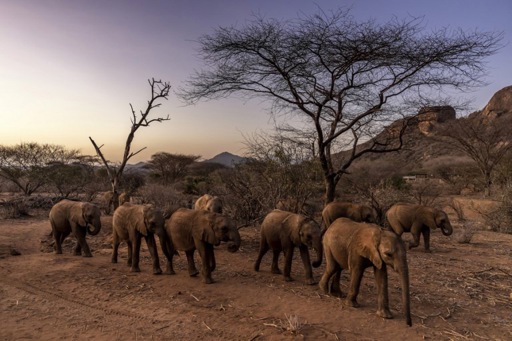Over the past 10 years, nature has absorbed more than half (54%) of the carbon dioxide (CO2) emitted as a result of human activity, thus slowing down global warming, says a WWF study, which concludes that “nature is our best ally in the fight against climate change.”
The WWF report, published on Wednesday on the occasion of Biodiversity Day at the UN climate conference, COP27, in Sharm el-Sheikh, is based on the work of the Intergovernmental Panel on Climate Change (IPCC).
It points out that about 31% of man-made CO2 emissions over the past 10 years have been absorbed by terrestrial ecosystems, including plants, animals and soils, and that a further 23% has been absorbed by the oceans, acidifying their waters in the process.
Nature is a climate ally, but natural systems are being pushed beyond their limits by the relentless pressure of climate change, pollution, overexploitation and conversion of ecosystems, says WWF.
The non-governmental foundation believes governments at COP27 must integrate the links between climate, people and nature, and accelerate progress on mitigation and adaptation ambitions and loss and damage.
Currently, the rise in mercury relative to the pre-industrial era is estimated at +1.15°C and is already resulting in more frequent and more powerful extreme weather events, the organisation warns.
“To limit warming to 1.5°C, adapt to climate change and save lives and livelihoods, we must safeguard and restore nature,” the environmental NGO insists.
For the WWF, the COP15 biodiversity conference, scheduled for December in Montreal, represents an inescapable opportunity for humanity to restore its broken relationship with nature.

